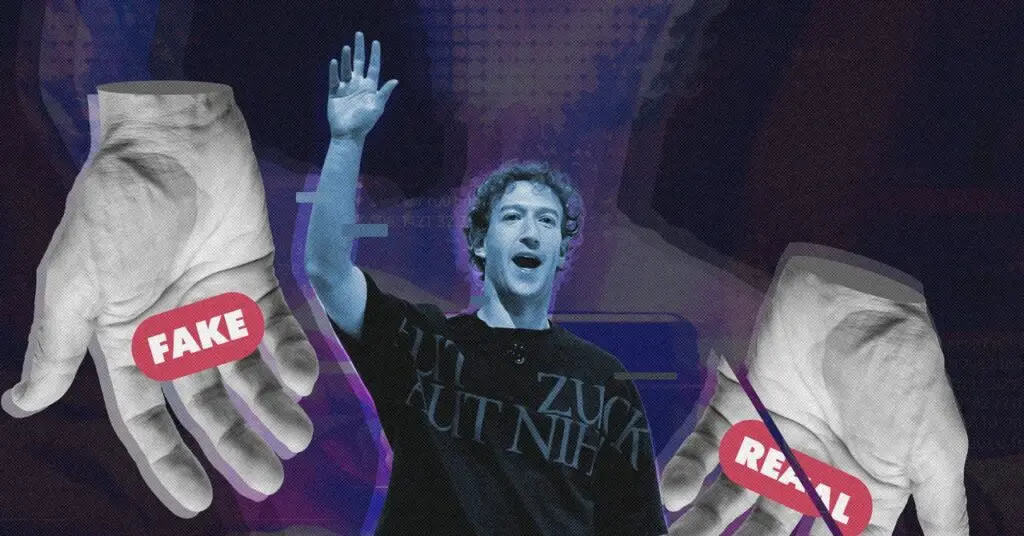This 180-degree change is a reaction to Donald Trump’s upcoming second term as president and to the methods of the competition. such as the Community Notes of X. Meta has decided not to invest any further money in its program. Now it is hoped that Facebook and Instagram users will decide for themselves which content is disinformation and which is not.
In the statement in which Zuckerberg announced he was eliminating the program, he said fact-checkers had succumbed to political bias and had destroyed more trust than they had built in the United States. For Laura Zommer, former director of Chequeado (one of the main Spanish-speaking verification organizations) and LatamChequea and now head of Fact-checked (a verification medium aimed at the Latino community in the US), Zuckerberg’s statements are no surprise and he has no scientific evidence to support his claims. “Instead of censoring, fact-checkers add context,” says Zommer. “We never advocate the removal of content. We want citizens to have better information to make their own decisions.”
Zommer, who is skeptical about how dismantling this program could benefit Meta, emphasizes that the company is contradicting itself by ending the fact-checking program, especially because it has highlighted its positive results in the past. Zommer also agrees with Angie Drobnic Holan, the current director of IFCN, who said in a LinkedIn postwrote: “It is unfortunate that this decision comes due to extreme political pressure from a new government and its supporters. Fact-checkers were not biased in their work – this line of attack comes from those who believe they should be able to exaggerate and lie without refutation or contradiction.
As Trump threatens a mass deportation of migrants just days before his inauguration, the Hispanic community may be facing a new wave of disinformation. “The evidence leads us to believe that this will be bad. We’ll see until it’s implemented, but we can say that during the Trump campaign, one of the main disinformation narratives was directed at migrants, such as those claiming migrants were committing fraud.” “That was wrong. Past data leads us to believe that this decision will likely have a negative impact on Latino communities in the U.S.,” Zommer tells WIRED en Español.
It’s not just anti-immigrant rhetoric that endangers the ecosystem. At a time when deepfake video and audio scams are proliferating, having actionable information will be a priority.
Spanish-language fact-checking media in danger
The Latin American news ecosystem, with its economic vulnerability, is at risk. “Facebook’s payments for the fact-checking program still kept fact-checking organizations and news organizations with a fact-checking section afloat. “So I think that if these organizations don’t manage to diversify soon, many of them will most likely disappear,” says Pablo Medina, disinformation research editor at the Latin American Center for Investigative Journalism, CLIP.
While the decision only applies to the US for now, the project’s disappearance has raised alarm in the Hispanic media ecosystem. “Meta CEO Mark Zuckerberg’s attack on so-called ‘secret courts’ promoting censorship of the platform in Latin America – a false claim – shows that Brazil is at the center of the company’s concerns,” says Tai Nalon, CEO of Aos Fatosone of the most important fact-checking media in the global south.
“This is entirely consistent with the rhetoric of Donald Trump, a frequent critic of journalism and fact-checking,” Nalon said. “The arguments used by Zuckerberg have been widely exploited by the far right around the world to delegitimize effective anti-disinformation initiatives.” Since there has never been any dissatisfaction with the work of fact-checkers before, this seems to me to be a move aimed at gaining political advantage. We know that Meta is facing antitrust litigation in the US and proximity to the government could be beneficial to the company.”
Meanwhile, Laura Zommer says evidence from the past is giving the news ecosystem cause for concern.
WIRED en español contacted Meta for this story. The company responded through a media representative with this Explanation (in Spanish) of the decision and said that this does not apply to WhatsApp and only applies to US verifiers.
This story originally appeared on WIRED in Spanish and was translated from Spanish.





